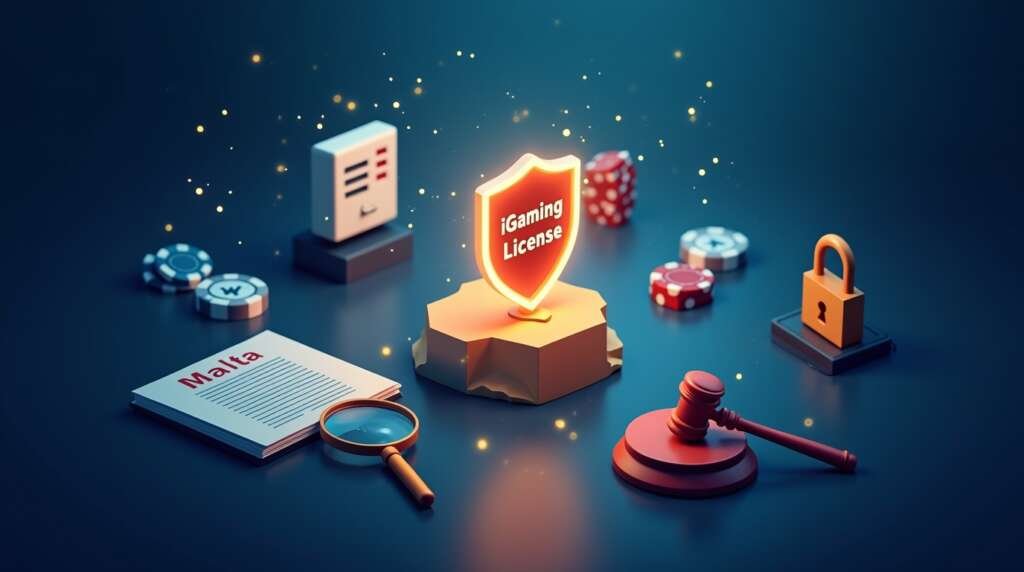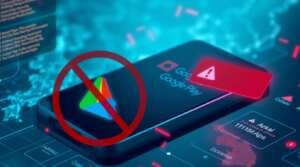Malta has established itself as a powerhouse in the gambling industry over the years with its progressive regulatory rules, international credibility, and favorable environment. The country has become a preferred location for gaming operators seeking stability and growth opportunities. It’s no brainer that gaming companies will only move to a stable and pro-business political environment that supports their cause, with flexible legislation and clear licensing procedures. Malta presents the perfect destination for growth.
The country owes this influx to its upstanding gaming regulatory agency, known as the Malta Gaming Authority (MGA). This body is responsible for issuing licenses and enforcing compliance for the players’ and operators’ safety. A Malta iGaming License is one of the most recognized and prestigious certifications in online gaming, making it essential for gaming companies entering the competitive landscape.
However, applying for an MGA license is complex. This article delves deeply into Malta’s iGaming world, MGA’s role, license categories, application requirement costs, etc.
Why Malta is a Global Hub for iGaming
Malta was one of the first European countries to embrace online gaming. The Maltese government saw an opportunity in the gaming industry before many mainstream European countries and took a gamble. It began enacting remote gaming regulations as early as 2004, going ahead to shape modern compliance and licensing rules.
For more than two decades, Malta has become a home to over 300 gaming companies, including those in online casinos, sports betting, poker rooms, and lottery providers. According to KPMG insights, the iGaming sector contributes to over 12% of Malta’s overall GDP, highlighting the industry’s maturity and the confidence level in the sector.
Advantages of setting up an iGaming business in Malta
Investors are trooping into Malta because of the following factors:
-
Stable legal framework
Malta has a robust and stable regulatory system that clearly defines what investors and players must do and not. The legal framework not only provides clarity but also enhances investor confidence.
-
EU member state
Malta is a member of the European Union (EU), which means it operates under EU laws. With an iGaming Malta license, businesses can operate freely within the European Single Market. They can offer their services to various countries in the EU as long as gambling is legal.
-
Skilled workforce
Malta boasts of multilingual experts with skills in IT, compliance, and customer support. These skilled professionals offer advice and help new operators navigate their way in Malta’s iGaming ecosystem and provide guidance.
-
Tax incentives
Malta institutionalized a competitive tax credit structure for iGaming companies, where their taxes are reduced by 5%. This unique system makes the country one of the most tax-friendly jurisdictions globally. Businesses in Malta registered in other countries also avoid double taxation, as the Maltese government has up to 70 double taxation treaties signed with various countries.
iGaming companies looking for tax incentives, credibility, and broader access to European markets will find the Malta iGaming license gold.
Regulatory Body: Malta Gaming Authority (MGA)
The Malta Gaming Authority regulates all gambling activities in the country, including B2B, B2C, land-based casinos, lotteries, and betting shops. This regulatory agency, established in 2001, issues gambling licenses that permit businesses to execute gaming services in Malta. The agency was established three years before Malta entered the European Union. Before its entry, no other country had drafted rules for internet gambling.
Since its establishment, the MGA has always focused on creating an enabling environment guarded by regulations to allow online gaming operators to thrive. This, of course, adds to protecting consumers. As part of issuing licenses to applicants, the MGA also partners with law enforcement agencies to investigate and ensure that applicants meet the requirements of a gaming license. It may turn down an application if it fails to meet the stringent criteria, such as AML/KYC compliance and fair play.
Some of the key responsibilities of the MGA include:
- Evaluating and issuing licenses to applicants.
- Ensuring gaming companies maintain compliance and financial integrity.
- Safeguarding consumers’ rights
- Strictly oversee issues, such as fraud and illegal betting.
- Monitoring latest trends to stay ahead of the curve and support innovation.
Types of iGaming Licenses in Malta
Malta iGaming licenses are broadly categorized into two: the B2C (Business to Consumer) license and the B2B (Business to Business) license.
B2C License
The B2B license is a permit granted to operators that offer their services directly to players. This license is further broken down into four other gaming licenses, such as Type 1, Type 2, Type 3, and Type 4.
A Type 1 license is mainly for casino games, lotteries, and virtual sports platforms. It is granted to businesses that offer games of chance, in which a random number generator determines the outcome. In contrast, a Type 2 license is granted to gaming operators that offer fixed odds betting on a chance-based game, with the result of the event determining the outcome. Sports and pool betting are common examples.
Type 3 gaming licenses are granted to businesses that provide chance-based games played against other players. These are mostly peer-to-peer games, such as poker and bingo. Lastly, a Type 4 license is granted to operators that provide controlled skill games, such as fantasy sports.
B2B License
The B2B license is granted to companies supplying gaming software, platforms, services, game elements, etc., to B2C operators. This license is also known as a Critical Gaming Supply License because it’s intended for businesses, not consumers.
Businesses that hold a reputable license outside Malta, especially in jurisdictions with a similar framework to Malta, can apply for a recognition notice permit to operate in the country. This permit grants businesses the same rights as the other two.
B2C and B2B licenses are typically granted for 10 years and are renewable. However, the license can be revoked at any time if operators violate compliance and reporting rules.
Licensing Requirements and Process
Securing a Malta iGaming license is stringent due to compliance checks and due diligence. This is essential to uphold the prestige of the MGA license. Gambling operators seeking to get an iGaming license from the MGA must know the basic requirements for licensing or the eligibility criteria.
To qualify for a license, the MGA will screen applicants for the following:
- Structure: The company must be registered or established in Malta or within the EU. Additionally, the company should have a significant part of its gambling operations in Malta.
- Compliance checks: The company’s executives, including the director, will undergo background checks for integrity purposes. They mustn’t have any history.
- Financial capability: The MGA will check if the company has sufficient capital to run operations. License holders are subjected to a minimum issued and paid-up share capital according to their license type. For example, Type 1 or 2 licenses command a minimum of 100,000 euros, while Type 3 and 4 licenses require a minimum of 40,000 euros.
- Business plan: A clear business plan outlining operations, including games, markets, and compliance procedures, will also be reviewed.
Steps to apply for an MGA license:
Below are detailed steps to help applicants secure an MGA license.
1. Application and documentation
The first step is preparing to submit an official MGA license application, which shows the applicant’s readiness to operate a gambling company in Malta. Applicants must provide all the required documentation, including:
- The corporate structure (shareholders and board members)
- Business plan (explaining market projections and gambling operations)
- AML/KYC frameworks for responsible gaming and risk management.
Having all these included in the application process increases the chances of securing faster approval.
2. Due diligence and background checks
The MGA proceeds to conduct rigorous due diligence and background checks to verify the documentation submitted. It conducts a fit and proper test, which involves running background checks on key stakeholders for criminal records, such as fraud or money laundering. The company’s finances are also assessed for credibility and capital inflow for long-term operations.
These checks ensure that only trustworthy gaming operators are in Malta’s iGaming ecosystem. Remember, the country maintains the highest standards when it comes to iGaming.
3. Business and compliance audit
When due diligence is concluded, the MGA conducts a business and compliance audit. Here, the regulatory body checks whether the company’s business model aligns with Malta’s iGaming requirements. This audit reviews:
- The company’s financial projections, provided in step 1 to verify operations’ sustainability.
- Procedures for responsible gaming
- AML/KYC and other countermeasures for terrorism financing to ensure compliance with the EU framework.
The purpose of the audit is to protect players and uphold Malta’s iGaming prestige.
4. Systems review and technical infrastructure
This is the last step before the MGA grants a license to the applicant. The applicant’s technical infrastructure will undergo a rigorous review to show data protection measures, game fairness, disaster recovery plans in system failures, and secure servers. This ensures the players are provided with a safe environment for iGaming.
Some financial obligations must also be fulfilled to get a Malta gaming license. More on this later.
Compliance and Ongoing Obligations
The MGA license is valid for 10 years. Once the license is approved, the MGA expects the gaming company to provide services in line with its application. If a company wishes to update or alter some details, it’d have to write to the MGA again.
As explained, license holders must undergo a compliance audit after the first year of operation. They must submit all the essential records, such as monthly and half-year reports, players’ activities, and other reports requested by the MGA. The regulatory agency can suspend or terminate an operator’s license if it fails to submit appropriately or comply with the legal obligations as stipulated in Malta’s regulatory framework.
In summary, gaming operators must maintain stringent MGA compliance standards to retain their license. They must:
- Ensure AML/KYC and monitor customer transactions for any fraudulent activities.
- Enforce responsible gaming policies
- Ensure regular reporting to the MGA covering financial activities and players’ activities.
Costs and Taxes Involved
As you may have guessed, the Malta iGaming license is more expensive than other EU gambling licenses. To begin with, the applicant must pay a non-refundable 5,000 euros application fee. This fee is paid in the last stage of the application process.
After the license has been issued, the gaming company must pay a fixed annual license fee. Think of this as paying to renew a license. This costs between EUR 25,000 and EUR 50,000 in license fees annually, depending on the license category. For instance, the gaming license fee for Type 1, 2, and 3 B2C holders is EUR 25,000, while Type 4 licenses cost EUR 10,000. B2B license holders pay the same fee, except those that offer back office services, which pay EUR 10,000 instead.
License holders also pay compliance contribution fees monthly, a percentage of the operator’s monthly revenue. There’s also a standard corporate tax of 35% that gets reduced over time with refunds and exemptions.
Common Challenges and How to Overcome Them
While a Malta iGaming license is reputable and valuable, the processes involved are cumbersome. Sometimes, this makes the process even more complicated for operators. Some of the challenges include:
- Complex documentation: Applicants must submit extensive records and documentation as requested by the MGA. These records could take weeks or even months to gather before the first application process is initiated.
- Strict AML/KYC Standards: This adds to the point above. Meeting EU and Malta’s requirements can be extremely resource-intensive, making the entire application process time-consuming.
- High Costs: Securing an MGA license doesn’t come cheap. Even after paying the application fee, other fees like license fees and tax obligations come up later. This may be difficult for startups.
- Stringent Monitoring: MGA requires frequent monitoring and continuous audits. These require robust internal systems that are also expensive to set up.
Despite the challenges, the benefits of securing an MGA license outweigh the legal and application complexities. The key is to start gathering the necessary documents early, as this would speed up approval.
Success Stories and Case Studies
Many of the world’s finest operators chose Malta as their base because of the MGA license’s credibility, friendly regulatory system, and access to the EU market. Below are some success stories of companies in Malta.
1. Betsson Group
Betsson Group is a popular gaming operator in Europe, covering online casinos and poker platforms. The company obtained an MGA license, which allowed it to build credibility with European players through strong AML/KYC compliance and expand into several regulated markets under the EU framework.
2. Tipico
Tipico is a sports book operator that also chose Malta to scale operations across Europe. The company leveraged the MGA license to ensure smooth cross-border operations, gain trust with customers and partners, and maintain transparent and responsible betting in line with MGA’s requirements. This ensures long-term operational stability.
3. Kindred Group
Formerly Unibet, Kindred Group is a gambling powerhouse that operates with an MGA license in Malta. The company has gained regulatory certainty and strategic expansion, access to Malta’s gaming talents and service providers, and credibility. Having an MGA license has made scaling smoother.
For companies seeking an MGA license, the success stories of the companies above show that:
- Compliance isn’t a burden but a necessity to build trust and credibility.
- Investing in technology early can scale operations.
- Prioritizing responsible gaming can strengthen brand reputation and keep the company in the good books of MGA.
Conclusion
The Malta iGaming license is a reputable gambling license that opens doors to many operators seeking visibility in the gaming ecosystem. Malta is widely recognized as a global hub for online gaming, and with its progressive regulations, the country is attracting foreign companies to do business in the jurisdiction.
Although securing a Malta iGaming license is a stringent process that comes at a steep cost, those who eventually succeed gain a prestigious license and position themselves for long-term growth. The MGA license is a gateway to robust expansion for any serious operator looking to build credibility.
FAQ Section
1. How long does it take to get an MGA license?
A: Typically, it takes about 6 months to get an MGA license, depending on the application’s complexity and the gaming company’s readiness. The MGA application process is a lengthy one, and only those prepared in advance with the necessary documentation can secure approval faster. Also, delays can ensue if the applicant fails the MGA compliance standards.
2. Can a foreign company apply for an iGaming license in Malta?
A: Yes! A foreign company can apply for an iGaming license in Malta, provided it meets the Malta iGaming license requirements. Many international companies choose Malta because of its flexible rules, globally recognized license, and credible reputation in gambling. It’s recommended to partner with a compliance expert to navigate the MGA application process seamlessly.
3. What are the penalties for non-compliance?
A: The penalties for non-compliance can be severe, from facing hefty fines to license suspension. The Malta Gaming Authority is responsible for enforcing stringent MGA compliance rules, a standard it has upheld over time. Companies holding a Malta Gaming license must ensure compliance to avoid damage.




